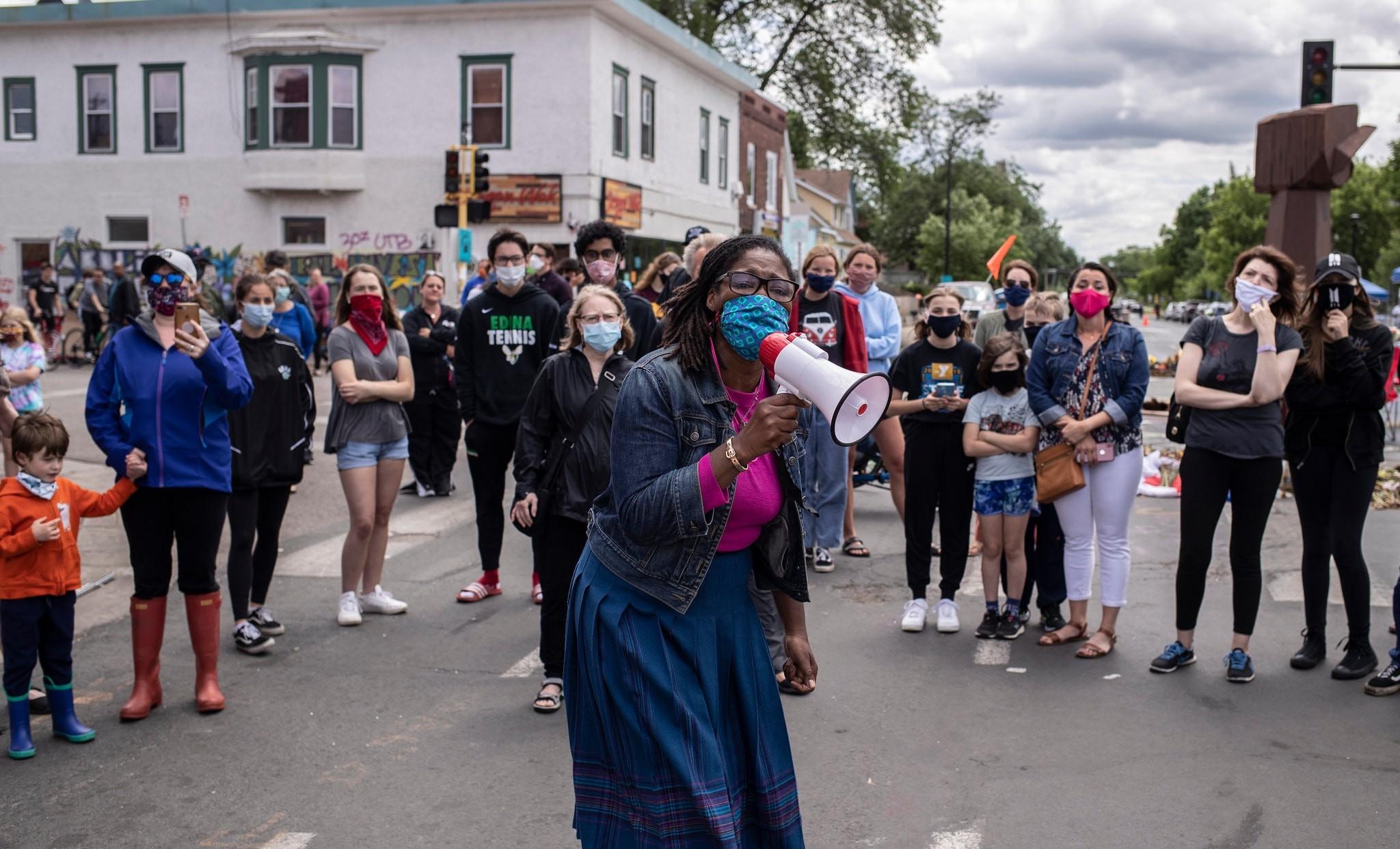The protests against the death of George Floyd in Minneapolis quickly drew widespread condemnation of racism among Americans, with swift and intense consequences.
By Wednesday, CrossFit's chief executive had resigned after giving a speech on racial discrimination and racism in a company phone call.
Thousands of researchers across the country went on strike, abandoning research, lectures, conferences and other work,
Take a round-the-clock call to action to protect the lives of black people.

Merriam-Webster said it would expand its dictionary definition of racism to address systemic bias.
The reason for this change is that protesters across the country continue to call for racial justice and accountability with inner strength.
In Richmond, Virginia, protesters smashed a statue of explorer and colonist Christopher Columbus overnight and threw it into the lake.
In Boston, a similar statue was beheaded.
Across the country, at least 10 monuments to the Confederacy or other controversial historical figures have been demolished, and people have challenged similar monuments in more than 20 cities.
This reflects a major shift in public opinion as Congress grapples with racial bias in police accountability and law enforcement during a pivotal election year. The House Judiciary Committee heard testimony from the Floyd brothers on Wednesday.
Floyd opposed police repeated killings of black Americans and urged lawmakers to "stop it."
Hardly any industry is immune.
In Minneapolis, police chief Medaria Arradondo said he would no longer negotiate contracts with police unions as officials across the country increasingly ignored influential police and corrections organizations.
As major sports grapple with protests and the freedom to allow athletes to speak out, NASCAR banned the use of Allied war flags in its games, many of them in the south. Last week, Roger Goodell, commissioner of the National Football League, said the league was wrong to dissuade players from political protest.
Adidas has made a series of concessions in the face of employee outrage, including promising to hire 30 percent of employees who are black or Latino, but critics remain upset that the company has not formally acknowledged discrimination or apologized.
After University of Chicago economist Harald Uhlig criticized and belittled the black protesters, a group of economists asked him to remove the editor of Political Economy, the field's top academic publication.
Authors and book publishing employees have publicly talked about pay differentials in the vast majority of white industries under the hashtag #PublishingPaidMe.
In newspapers, the percentage of white people in newsrooms is also high. Recently, senior editors of The New York Times, The Wall Street Journal and The Philadelphia Inquirer resigned or were transferred after staff complained about editorial decisions about race and protests.
In the Pittsburgh Post, two prominent black journalists said their bosses unfairly prevented them from covering protests against racism and police violence, and many colleagues expressed support. Top editor Keith C. Burris said the newspaper only targets journalists who show bias.
Two years after the NFL imposed a penalty on him for racial discrimination and sexual harassment, the Carolina Panthers removed a statue of former football team owner Jerry Richardson from outside the stadium in Charlotte, North Carolina. The team called it a public safety issue, citing the possibility that someone might try to remove the statue.
In Atlanta, two police officers were fired Wednesday after they were stuck in traffic protesting police brutality on May 30, when they dragged two students out of their cars and fired at electric shock guns, resulting in four officers being fired. The result of the event.
Pastor Smith warned in a eulogy to Mr. Floyd this week,
History shows that such a strong focus on social racism is unsustainable.
He promised to return to Minneapolis at the beginning of the police trial,
And in a speech by the Reverend Martin Luther King Jr. in Washington, the anniversary of "thousands" marching toward Washington.
"We have to commit ourselves to this family – all these families, all his children, their grandchildren and all these people – and we will be with them until these people give for what they have done," he said. ”
"Because life like George's is going to become irrelevant unless someone pays the price for their life."